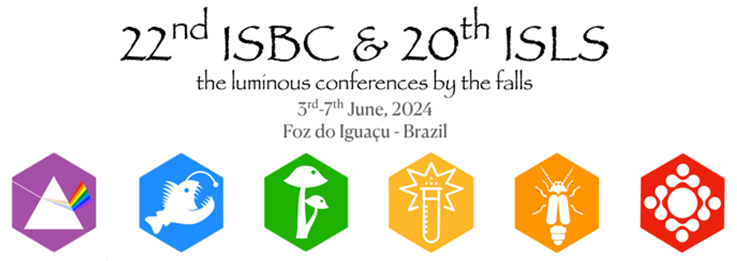Abstracts
Analytical, clinical and medical applications of luminescence
Portable luminescence-based biosensors for space health science and astrobiology applicationsMara Mirasoli1
1University of Bologna, Department of Chemistry \\
E-mail: mara.mirasoli@unibo.it
NASA currently has plans to return humans on the Moon and eventually land crewed missions on Mars. However, these challenging goals are unachievable unless we can ensure the safety and health of the astronaut crew and other terrestrial biology on those missions. Biosensors can play several roles in this context, such as evaluating astronauts' health, monitoring environmental and food safety, assessing the impact of deep space conditions on biological systems, and investigating the traces of past or present life in extra-terrestrial environments, thus evaluating their potential habitability.Chemiluminescence (CL)-based biosensors are a very promising approach, offering high specificity and detectability, and amenability to miniaturization. In addition, the increasing development of extremely compact systems relying on microfluidics, commonly known as lab-on-chip devices, has gained much attention thanks to their favourable characteristics in terms of reduced size and weight, very low sample and reagent consumption, reduced analysis time and, often, superior achievable performances in terms of limits-of-detection. Chemiluminescence-based lab-on-chip devices are extremely suitable for space missions. The recent and ongoing research activity in the development of CL-based lab-on-chip devices for space life science investigations will be presented. An integrated, easy-to-use, and portable analytical instrumentation is under development and will be tested onboard the International Space Station (ISS) for the CL immunoassay-based analysis of salivary biomarkers of immune system impairment in astronauts. Furthermore, autonomous analytical platforms are being developed, suitable for CubeSat missions, aimed at evaluating the combined effect of microgravity and ionising radiation on prokaryotic and eukaryotic bioluminescent cells and on fluorescent microbial biofilms. Additional activity regards the development of a CL lab-on-chip-based autonomous device, suitable searching of past and present life in robotic and human space exploration missions, based on the enzyme-, antibody- or molecular imprinted polymer-mediated recognition of organic molecules and molecular biosignatures related to the processes of life.The highly interdisciplinary activity performed in collaboration with several Italian and European institutions and companies will be presented. The strengths and future development opportunities for CL biosensors in Space life science applications will be highlighted.The ALCYONE project is supported by the European Union’s Horizon Europe programme under grant agreement No. 101082679; the APHRODITE project is supported by the Italian Space Agency (ASI) through the Contract n. 2021-4-R.0, (CUP F35F21002690005, CIG 850065633F); the BESIDES project is supported by ASI through the Contract n. 2023-3-E.0 (CUP F43D23000130005); the BOREALIS project is supported by ASI through the Contract n. 2024-2-I.0 (CUP F33C24000040005, (CIG A0277F7460).
Keywords: Chemiluminescence; Bioluminescence; Lab-on-chip; Astrobiology
Acknowledgments: Acknowledgements: The ALCYONE project is supported by the EU Horizon Europe programme, the APHRODITE; BESIDES AND BOREALIS projects are supported by the Italian Space Agency

